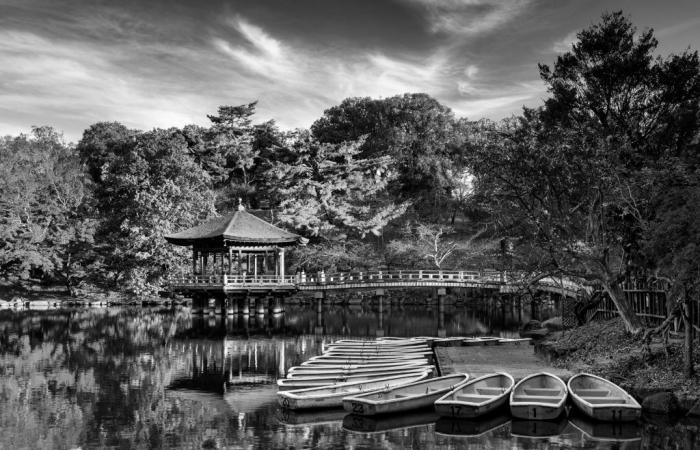
By dancing the Japanese. Amélie Nothomb has a very close relationship with Japan. She was born in 1967 when her father was Belgian consul in Kobe. He returned later, as his country’s ambassador to Tokyo, where he remained for eight years. An exceptional longevity for a diplomat who fell in love with Japan, whose language he spoke and sang Noh. Little Amélie spent her first five years in Kansai. Absolute happiness. She lives Japanese style, speaks the language.
But, in 1972, it was an upheaval, the first in a long series: his father was transferred. The child changes country, culture, abandons his precious nanny. She never really recovered, devoting several novels to her Japanese adventures, including Stupor and tremorspublished in 1999, about his attempt to return to live in Tokyo, in 1988-1990, and make a life in Japan. She had fallen in love with a Japanese man and worked in a large Japanese firm. There again, everything collapsed, and it was the entry into literature which, she says, saved her. But she will retain the deepest trait of her character, which can border on depression: nostalgia.
She did not return to the country of her heart until 2012, when she agreed to leave with her friend Laureline Amanieux, author and director, in order to make a documentary, Amélie Nothomb, a life between two waterson its relationship with traditional Japanese culture, emblematic places, religions, the art of living. This experience fueled a podcast, which today takes the form of a splendidly illustrated book, Eternal Japan. Amélie reviews a certain number of fundamentals, such as religions: Shintoism, an animism, with its kami, its divine spirits which are everywhere, particularly in nature, established as a state religion at the end of the 19th century.e century ; Buddhism, which came from China and Korea in the VIe century, and its syncretisms with Shinto and even with Christianity; Zen, with its simplicity, which she practices assiduously. Amélie Nothomb also talks about haikus, gastronomy, garden art, martial arts, the world of warriors and their path of honor (bushido) etc. What she calls her “personal journey through certain aspects of Japanese culture” is vast, erudite, accompanied by the best specialists with whom she has had discussions: a priest in Tokyo, on the great purification, Sophie Makariou, former president of the Guimet museum, on Buddhism, or even the author and translator Corinne Atlan , on haiku.
After that, Amélie Nothomb returned to Japan again, almost in spite of herself, in May 2023, with her friend the photographer Pep Beni, asthmatic and unpredictable. Their adventures, all the memories that come back to her, this permanent nostalgia, constitute the subject of her latest novel, The impossible returnpublished last August. Throughout the adventure, she rereads Countdown by Huysmans. There is no coincidence.
Amélie Nothomb and Laureline Amanieux
Eternal Japan. Journey under the flowers of a floating world
Albin Michel
Edition: 40,000 copies.
Price: €24.90; 352 pp.
ISBN: 9782226496607





